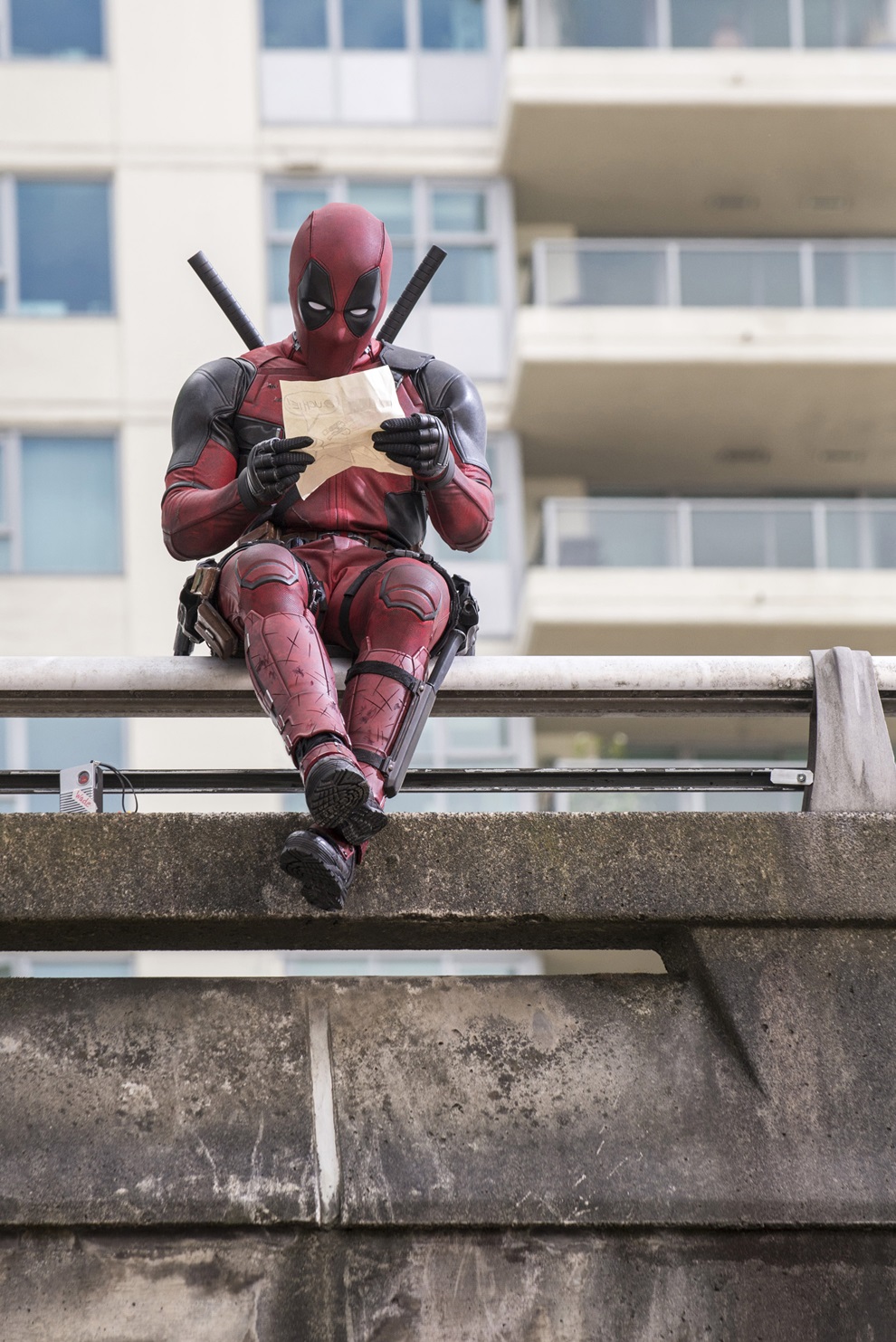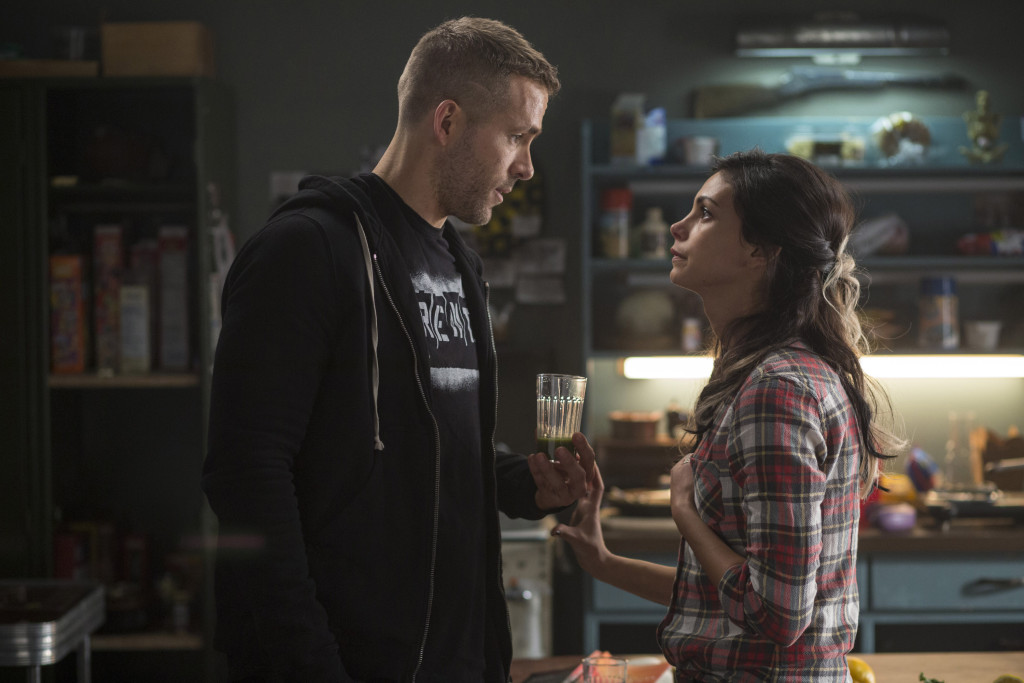This interview was conducted on 9 February 2016 and published on MCM Buzz on the same day. Both Rhett and Paul were incredibly nice (Rhett even apologised to me for interrupting). An edit was published in issue 47 of MyM Magazine.
—
 “It’s like a dream come true,” says screenwriter Rhett Reese, as he explains how it feels to have Deadpool, the film that he and co-writer Paul Wernick have been involved with for over six years, finally being released on the big screen this week. “I keep feeling like I’ve died and gone to heaven,” explains Reese.
“It’s like a dream come true,” says screenwriter Rhett Reese, as he explains how it feels to have Deadpool, the film that he and co-writer Paul Wernick have been involved with for over six years, finally being released on the big screen this week. “I keep feeling like I’ve died and gone to heaven,” explains Reese.
Rhett Reese and Paul Wernick are the writers behind Zombieland (which they’ve also brought to the small screen with the Zombieland TV series) and G.I. Joe Retaliation. They began adapting Deadpool in 2009, with Ryan Reynolds attached as the lead and Tim Miller to direct. It wasn’t until the summer of 2014 that leaked test footage of the film garnered an enthusiastic response among fans, resulting in 20th Century Fox giving Deadpool the greenlight.
Rhett Reese and Paul Wernick (who are credited in the film as “the real heroes”) took a little time out to talk about what attracted them to Deadpool, the film’s soundtrack, the pop culture references, and that Deadpool is a love story.
How does it feel for you, that after so many years, Deadpool is finally out there for the world to see?
Rhett Reese: So much of what we do in Hollywood is about convincing the people with the deep pockets to trust us. On this project, it took us a long time to do that. Finally, they did trust us, and to have that pay off the way it seems to be paying off, it’s like… I can’t describe it… it’s like I’m waking six inches above the ground!
You’ve described Deadpool as a passion project. What was it that first attracted you to the character and his story?
Paul Wernick: He’s so irreverent and he breaks all the rules. He’s an antihero and we just fell in love with his tragic story and how he hides behind that with comedy. He’s loveable, grounded and the ultimate character to write. When we sit down [to write], it feels less like a job and more like a pleasure.
Rhett Reese: Don’t tell the people who write our paychecks that!
With the characters Colossus (Stefan Kapicic), Angel Dust (Gina Carano) and Negasonic Teenage Warhead (Brianna Hildebrand) making an appearance, what was the thought process like when it came to deciding which characters you wanted to see in a Deadpool film?
Paul Wernick: Fox has a long list of characters they own the rights to in the X-Men universe. We basically figured out, ‘Okay, we got this antihero, who are the best people to play off that?’ One is the superhero, Colossus the gleaming, goody-two-shoes X-Men, a perfect compliment to Deadpool’s wackiness. We basically built that universe out, not trying to build it out too much, because the primary focus was Deadpool and introducing him, or re-introducing him, to the world.
Rhett Reese: You want good foils, ultimately. You want people he can come into conflict with in specific ways. We loved the idea of a morose, moody teenage girl and her sarcastic responses to Deadpool. We loved the physicality of Angel Dust, who couldn’t deal with Deadpool on a witty level, but just wanted to beat the crap out of him. Then we loved a character like Vanessa, because she could match Wade and Deadpool on a mental level, a witty level, so she could have really fun repartee. Everybody we viewed through the prism of Deadpool, the character.
I understand that some the music, like the use DMX’s “X Gon Give It To Ya” was actually written in the script. Is most of the music we hear in the film the same music you had in mind when writing this?
Rhett Reese: I’d say about half and half. Juice Newton and Wham! was always in there. Some songs we had to change because of rights issues. So we tried to get the rights to Gwen Stefani’s “Hollaback Girl” for the scene on the freeway and we just couldn’t afford it, so we ended up going with “Shoop” by Salt-N-Pepa. So there are certain realities, just budgetarily, to which songs you can use. Sometimes you envision a song and the pacing of it doesn’t quite work. We had a John Denver song in there, but the pacing of it wasn’t exactly right, so we changed it to…
Paul Wernick: “Mr. Sandman”.
Rhett Reese: “Mr. Sandman”! So it really depends. You have to explore. But I’d say roughly half the music we wrote in the script ended up in the movie.
In the trailers and the film itself, we hear Wade say that “this is a love story”. As funny as that sounds, we see that it actually is; for Wade, and in some circumstances even Vanessa (Morena Baccarin), make certain choices largely out of love. How early on in the process was it when you decided to make this a core factor for the story you wanted to tell?
Paul Wernick: Yeah, the joke really is on all the guys who think they’re going to see a superhero movie, because this is a love story. It’s the beating heart of the movie. It’s the story that grounds the movie and offsets all the silliness and makes you care about the characters and that’s so important. It really was from the very start how we set off to write this movie. It was, “Okay, what is the emotional component of this movie? What makes you care about these characters?” Really it’s two broken souls who find each other, come together, fall in love, get separated and come back together at the end. It’s the ultimate Nicholas Sparks movie (laughs). So yeah, it was very important from very early on in the process.
Because you’ve been involved with this project for over six years, were there moments during that time where you thought, “Oh, this joke sounds out of date. This reference doesn’t feel relevant anymore.” Or was it a case of, “This is still as funny now as it was six years ago”?
Rhett Reese: I think Deadpool doesn’t really have a chronological template to the references that he makes. He will make jokes about people from the past as well. We didn’t have to update a lot. We did occasionally… I wish I could remember off the top of my head. Like, Deadpool would make a Ronnie Milsap joke. Ronnie Milsap was a country singer in the 1970s and 1980s. That joke’s bound to go over the heads of anyone under the age of 40, for sure, yet we felt free to make it, because that’s the kind of thing that Deadpool does. We weren’t under a lot of pressure to make sure that it was of this moment. He’s a guy who will make a reference to any pop cultural thing he’s come into contact with over the course of his life. Ryan’s a 39 year old man, so it made sense to us that he could make jokes from about pretty much anything that he might have experienced in those 39 years.
Negasonic Teenage Warhead makes reference to his age as well, when Deadpool makes the Alien 3 joke.
Rhett Reese: (Laughs) Yeah, exactly. If you started to look at a timeline of the jokes, they’d probably reveal a little bit of the era we grew up in, because we’re around Ryan’s age. The Sinéad O’Connor’s, the Ronnie Milsap’s, the Salt-N-Pepa’s, those type of things really appeal to us. We tend to write for ourselves and on some level, we figure if it’s going to amuse and entertain us, it’ll amuse and entertain others. That’s always been a pretty good rule of thumb.
How much involvement did Ryan Reynolds have when it came to developing the script? Was there room left for improvisation when it came to actually shooting the film?
Paul Wernick: How involved was he? Intimately. We can’t speak highly enough in terms of Ryan’s contribution. He is Deadpool and Deadpool is him. We developed the story with him, we wrote the script for him, he saw pages before anybody else. He improvised some of the funniest lines. He elevated the script beyond our wildest imaginations.
Since Zombieland you moved onto G.I: Retaliation, as well as a spin-off with the Zombieland TV series and Deadpool. There’s also Cowboy Ninja Viking and Watch Dogs in the works too. How does it feel to go from an original idea to suddenly being offered and working on adapting popular projects such as sequels, comic books and video games?
Paul Wernick: Well the joke is we did Zombieland in 2009 and it was a success. We were hailing the success of original movies and it being so very rare in Hollywood that original movies get made. Then we went off and took two comic book movies and a sequel, right?
Rhett Reese: And a movie about toys. We’ve chosen the ones that we think have a real original voice. Maybe G.I Joe is a bit of an exception, because it was a sequel to an existing movie. But even though it was based on a comic, Deadpool felt like an original breath of fresh air to us.
Thank you to Rhett Reese and Paul Wernick for taking the time for the interview.
Interview by Shalimar Sahota.




